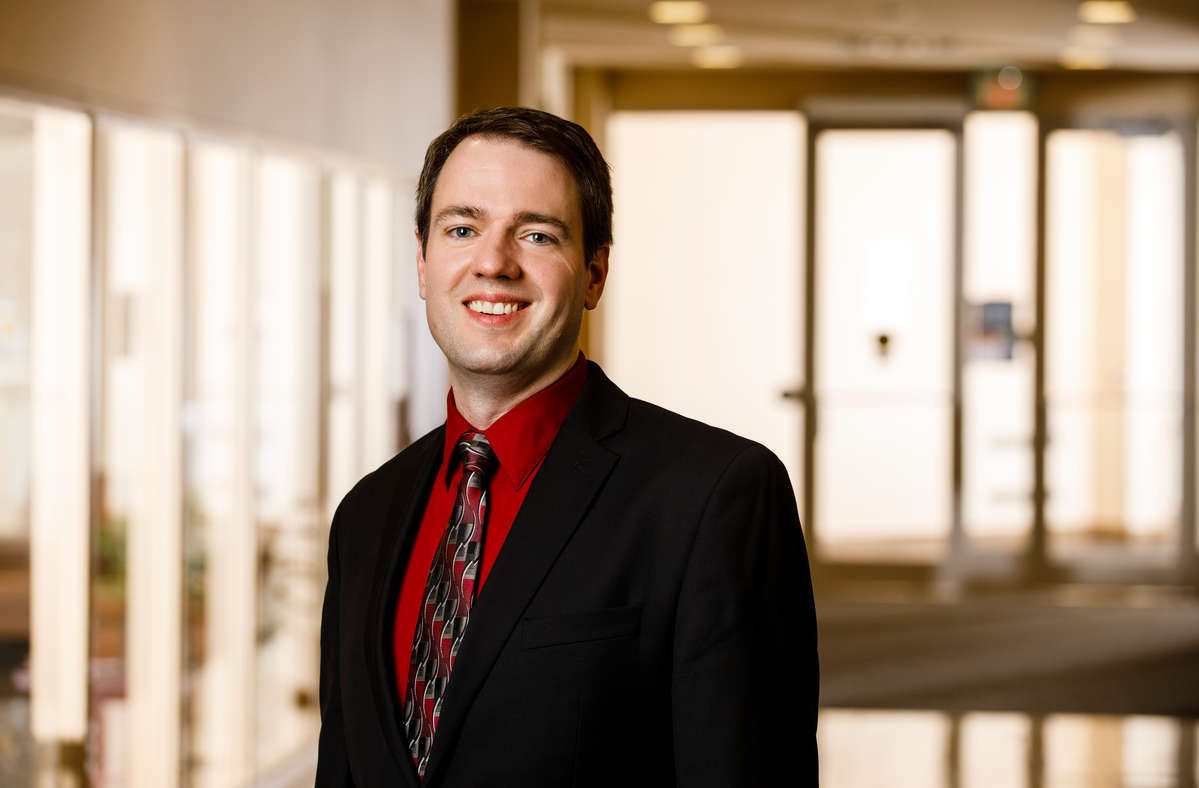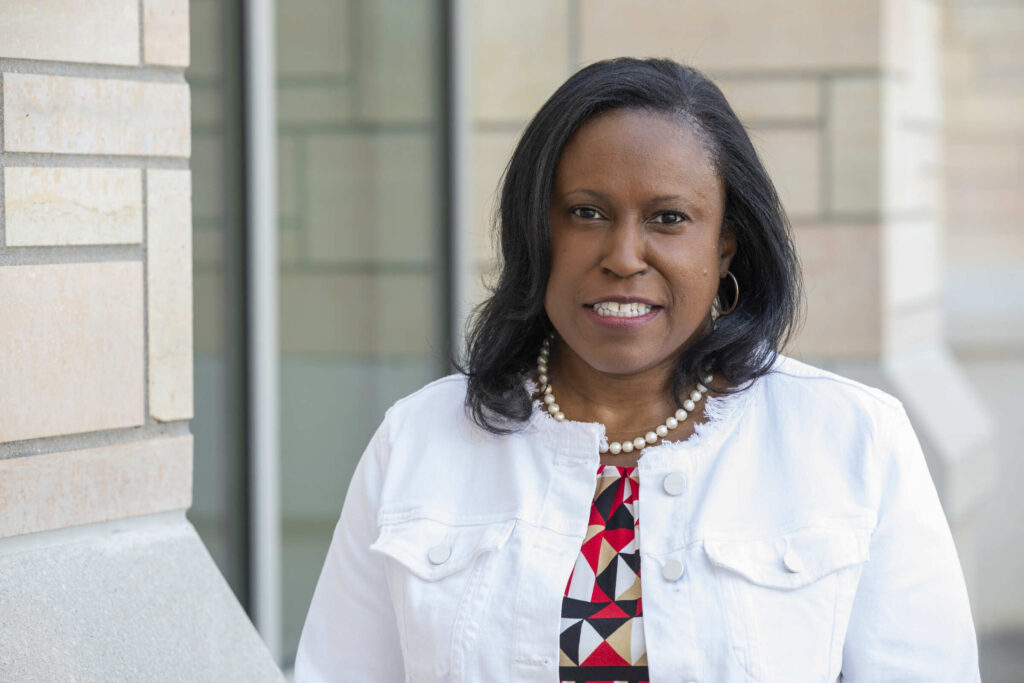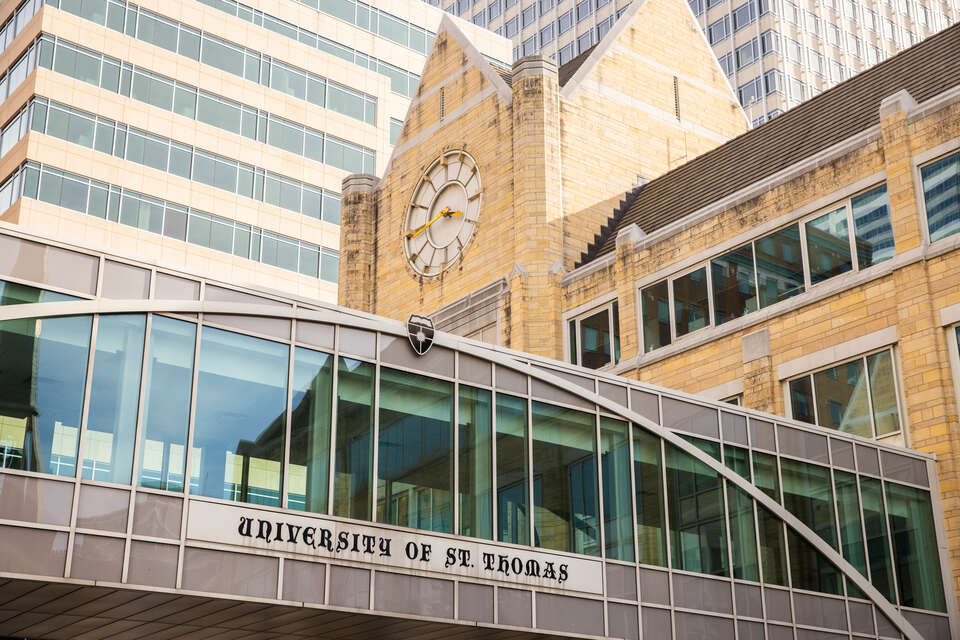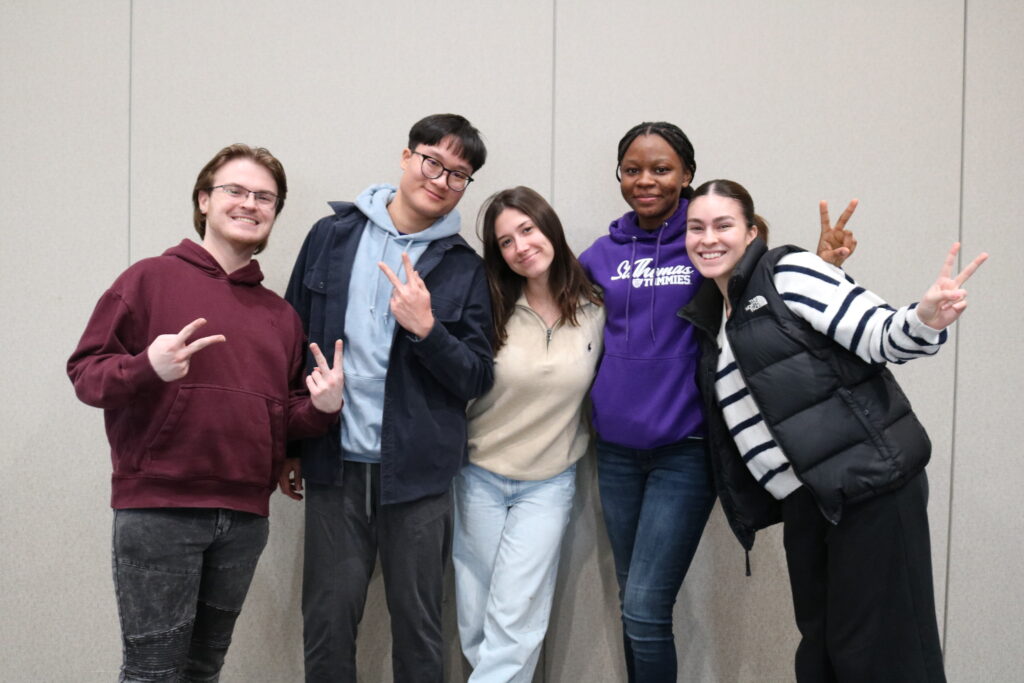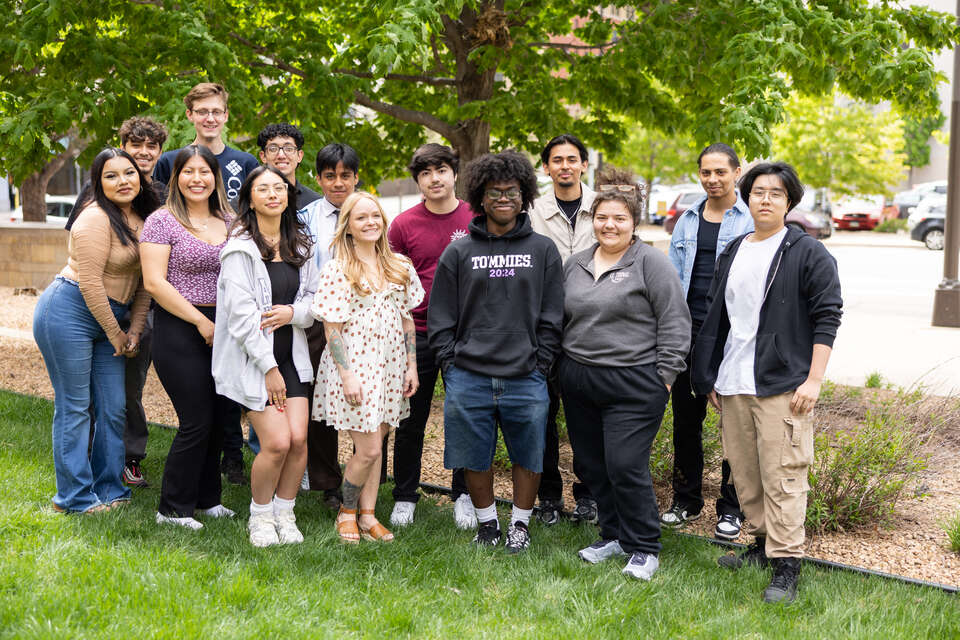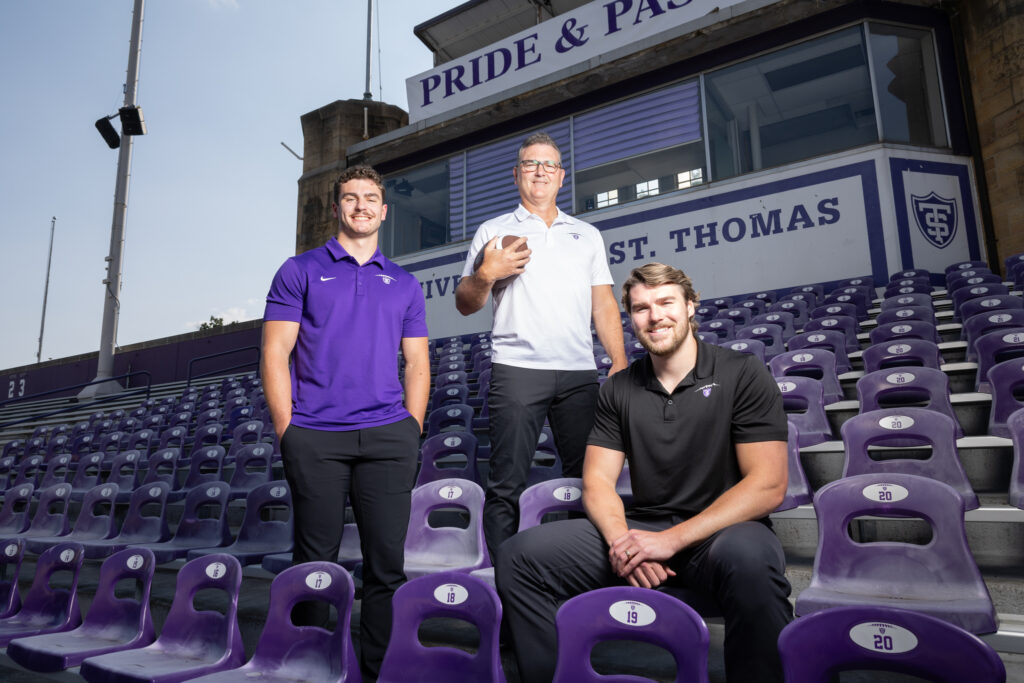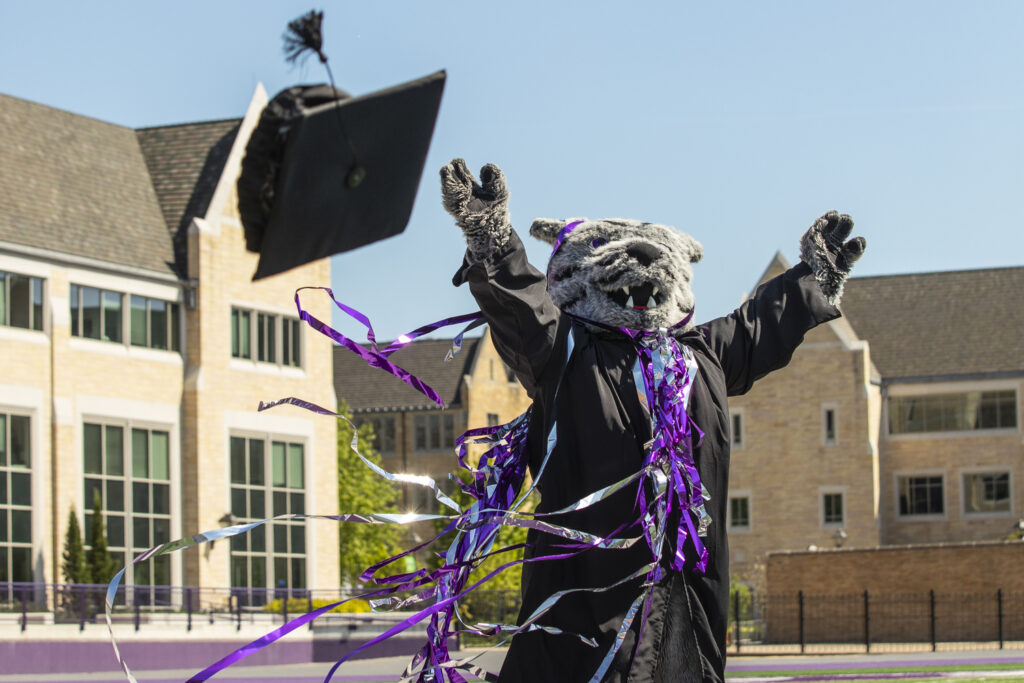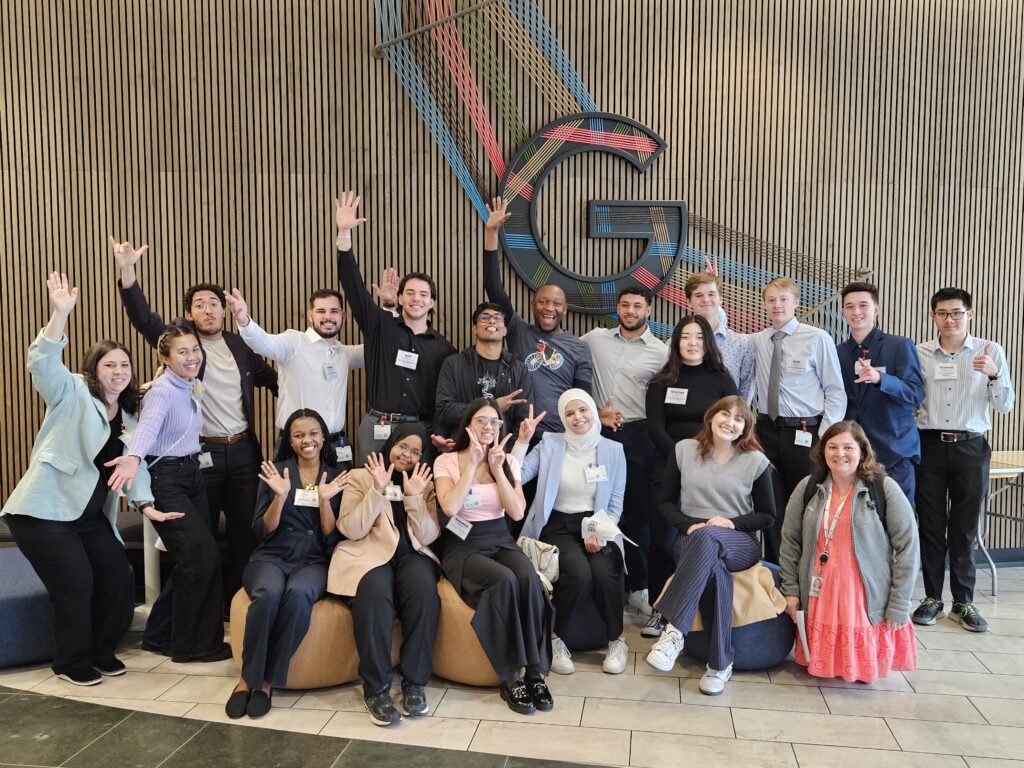Kevin Henderson has seen an opportunity to influence diversity, equity and inclusion at the University of St. Thomas through his leadership role as a professor in the Opus College of Business.
“The culture needs to change. I’m trying to help make that change happen to eliminate all the ‘isms’ that exist out there, so we can make sure everyone can bring their full selves to their classroom, to their work,” Henderson said.
Alongside other leaders at St. Thomas, including President Julie Sullivan, Henderson is setting to improve issues that are also a part of the St. Thomas 2025 strategic plan.
Some recent on-campus examples of racial justice advancement include recognizing Juneteenth and Indigenous Peoples’ Day as official university holidays, the launch of the law school’s Initiative on Restorative Justice and Healing and the creation of the Racial Justice Initiative.
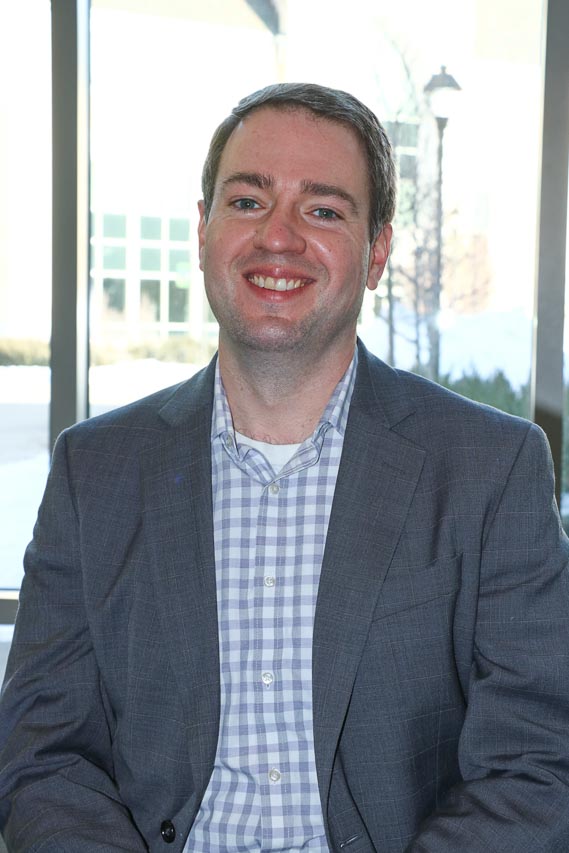
Henderson’s efforts are part of a much bigger picture at St. Thomas. Through his role as a DEI faculty fellow, he is working on changing the faculty handbook and institutional systems to better reflect the goals of the Office for Diversity, Equity and Inclusion. One way Henderson is seeking that change is by having staff include their DEI efforts in their annual reports.
Henderson’s academia career started years ago, and he joined St. Thomas in 2009 because of the diversity of ideas and the opportunity to discuss bigger-picture philosophies. He has seen a significant shift in students’ DEI commitment in recent years, a departure from when he first arrived over a decade ago. Henderson recalled a racist incident that happened on a Monday and a rally that was organized by Tuesday.
“I definitely see a culture change, but we still have room to grow,” he said. “There are still some people who aren’t engaging in it. They might think it’s a fad, or it’s just, ‘Oh, it’s just in reaction and eventually we’re going to move on to something else.’ But I’ve seen a very firm commitment from our leaders.”
Henderson has focused by making DEI progress in his day-to-day teaching.
“When the Derek Chauvin trial started, I talked to my students: ‘How are you feeling? This is tough. This is anxious. This is stressful.’ Let’s address the elephant in the room, if you will, and have a conversation about it.”
Henderson also shared the idea that efforts should extend beyond students to everyone who sets foot on campus. Henderson wants to present change by pushing issues, making them relevant and sharing communal events in the classroom.
Henderson also challenges his peers to initiate change and promote inclusivity in everything they do.
“‘What did you change in your course to make it more diverse? What are you doing in this area to become more inclusive?’ So, workshops and development, changing your syllabus, adding new activities, all of those would fall into that category,” he said.
Henderson hopes his and his colleagues’ efforts, combined with the university’s broader initiatives, advance the university’s DEI and racial justice ambitions and goals by 2025.
A note about the author: Abdihalim Mohamed, a student at Blaine High School, is a participant in the ThreeSixty Journalism program. A version of this article was first published by ThreeSixty Journalism, a nonprofit of the College of Arts and Sciences at the University of St. Thomas that uses the principles of strong writing and reporting to help diverse Minnesota youth tell the stories of their lives and communities.
